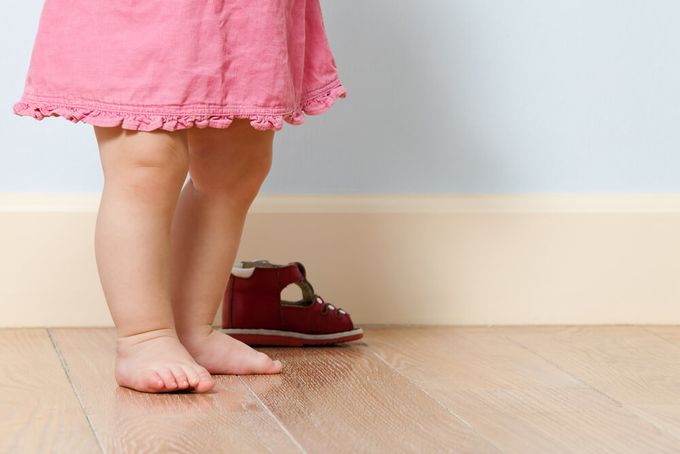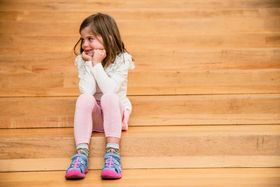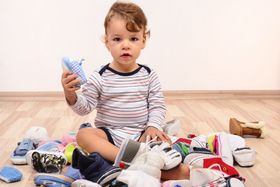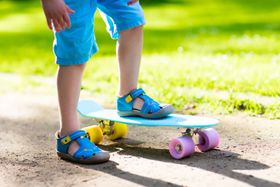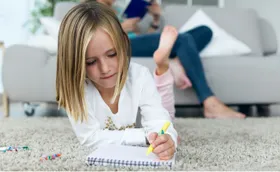Do Your Baby’s Feet Stink? Here’s What You Can Do
Discover ways to get rid of your baby's smelly feet, keeping them fresh and healthy with our practical guide.
Updated April 30, 2024.
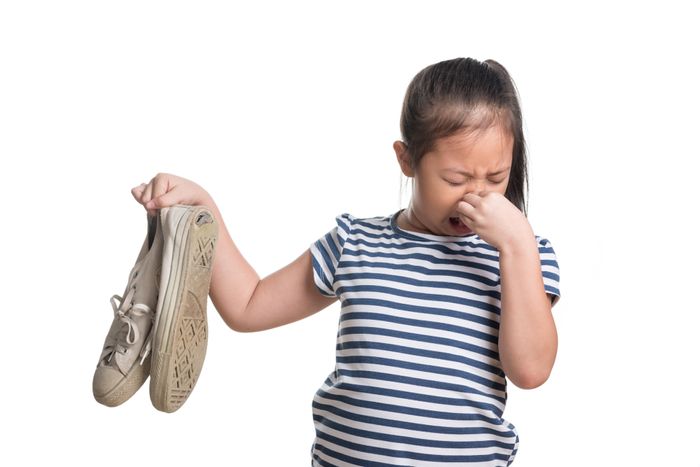
As loving parents, it's critical to ensure our babies are happy, healthy, and comfortable from top to toe. However, sometimes, we might encounter issues like smelly feet in our little ones. While it might seem peculiar, it's more common than you might think.
To learn more about this topic, we turned to Natasha Hogan, a passionate Podiatrist with specialty training in children’s podiatry, biomechanics, and over 20 years of experience in the healthcare industry. Having worked with defence personnel, sports professionals, and in hospitals, it’s unlikely there is an injury or condition she hasn’t dealt with.
Role of Shoes and Socks in Causing Feet Smell
When it comes to foot odour, the breathability of the footwear material plays a crucial role. Breathable materials like leather allow bacteria and fungi to filter in and out, preventing them from remaining in a warm, moist environment that facilitates microbial growth.
Socks, too, play a significant part. Using 100% cotton socks (even better if they’re organic) is essential as synthetic materials like polyester can trap heat, making your baby's foot a tempting environment for microbes. It's also worth noting that genetics and heart rate might influence a child's propensity to sweat and, consequently, the development of foot odour.
Importance of Cotton Socks
Cotton socks play an instrumental role in good foot hygiene due to their breathability and ability to wick away moisture. This is particularly helpful for babies 3-6 months old who don't wear shoes as often.
» Check out the best shoes for a baby that's just learning to walk
Home Remedies for Smelly Feet
If you notice a hint of odour emanating from your baby's feet, vinegar foot soaks or tea tree oil can provide a gentle solution. These substances are antifungal, antibacterial, and antiseptic.
However, use them cautiously, beginning with a highly diluted solution and increasing concentration gradually. It's essential to avoid these solutions if your child's skin is already irritated, dry, or cracked.
Medical Conditions Leading to Smelly Feet
If, despite your best efforts, your child's feet continue to smell, it's essential to seek medical advice. Underlying health issues, including hormonal imbalances or conditions like diabetes, could be the culprit. Genetics and certain specific conditions can also result in distinct foot odours.
Recommended Shoe Fabrics for Babies
When choosing your baby's footwear, consider materials like leather and mesh. While these materials have their drawbacks, such as potential sensitivity to dirt and sand with mesh, their breathability benefits outweigh the cons.
If weather permits, sandals can also be an excellent choice, offering breathability and proper support if they have a strap around the ankle joint. An added advantage of sandals and walking barefoot is that it can improve balance and coordination.
» Keep your baby's feet cool and odour-free in the summer
Proper Cleaning and Maintenance of Baby's Shoes
Proper shoe maintenance is vital to combat bacteria and odour build-up. Starting the day with clean, dry feet, along with a fresh pair of cotton socks, is the first step. Regular sock changes during the day, especially after lots of activity or if they become wet, can help avoid irritation.
Having two pairs of shoes to alternate between each day can also be beneficial. Sunlight exposure for at least eight hours can help air out leather shoes and kill residual bacteria or fungus. Additional measures such as using tea tree oil spray, UV light, or stuffing shoes with newspaper to absorb moisture can further help in maintaining your baby's shoe hygiene.
Preventing Bacterial or Fungal Build-Up in Shoes
To prevent bacterial or fungal build-up in shoes, it's wise to avoid using baby powder, which may contain potential irritants. Exposure to synthetic materials can lead to dry, cracked skin which may harbour bacteria and result in unpleasant odours. Therefore, it's best to avoid such conditions.
Make Sure Your Baby’s Feet Are Dry
Drying your baby's feet is as critical as washing them. Moisture trapped between the toes can encourage bacterial and fungal growth, leading to smelly feet. To prevent this, dry gently between the toes using a soft towel or face washer.
» Find out how often you should replace your toddler's shoes
Nipping Nasty Niffs in the Bud
While smelly feet in babies might seem like a puzzling issue, it can be addressed through careful selection of footwear materials, maintaining good foot hygiene, proper drying techniques, and regular shoe maintenance.
Remember, your child's foot health and comfort should always be a priority. Stay vigilant, trust your instincts, and don't hesitate to seek medical advice if concerns persist.
